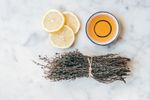Vitamin D is often called the "sunshine vitamin" because our bodies make it when exposed to sunlight. But it's also available in foods such as salmon, egg yolks and fortified cereals.
Where you get it is less important than ensuring you have adequate levels because this vitamin (which actually acts more like a hormone) plays a number of critical roles in the body, including bone health (by absorbing calcium and phosphorus), immune system function, mood regulation and inflammation reduction, which helps fight off certain diseases — including COVID-19.
As researchers learn more about the novel coronavirus daily, this association between vitamin D deficiency and COVID-19 risk — while not definitively proven — continues to surface in studies. One Israeli study, just published on July 27, revealed a significant association of low vitamin D levels with the likelihood of COVID-19 infection — even after adjustment for factors such as age, gender, socio-economic status and chronic illnesses.
In another study that has not yet been peer-reviewed, researchers at the University of Chicago Medicine showed an association between vitamin D deficiency and the likelihood of becoming infected with coronavirus disease.
“Vitamin D is important to the function of the immune system and vitamin D supplements have previously been shown to lower the risk of viral respiratory tract infections,” reports lead study author David Meltzer, MD, PhD, Chief of Hospital Medicine at UChicago Medicine. “Our statistical analysis suggests this may be true for the COVID-19 infection.”
Another study out of Northwestern University examined 10 countries with high COVID-19 mortality rates and noted that those countries have higher levels of vitamin D deficiency compared to countries that were not as severely affected by the disease.
Data showing that nearly half of Americans are deficient in vitamin D doesn't bode well for our ability to fight off this new pathogen. What's more, it's probable that it is yet another factor contributing to higher rates of COVID-19 infections and fatalities among Black and Hispanic populations.
RELATED: COVID-19: What Leads to the Worst-Case Scenario?
The reason: People with darker skin tend to have lower blood levels of vitamin D because the pigment (melanin) in their skin reduces production of vitamin D, according to Harvard Health. Low levels of the vitamin are also prevalent in people who live in cold northern climates where they don't spend much time outdoors.
The encouraging news, as study author Meltzer puts it: "Understanding whether treating vitamin D deficiency changes COVID-19 risk could be of great importance locally, nationally and globally. Vitamin D [supplementation] is inexpensive, generally very safe to take, and can be widely scaled."
As a final note, although the current research is not necessarily showing causation, there seems to be a strong connection, points out Frank Lipman, MD, Chief Medical Office of THE WELL.
Regardless, having your Vitamin D levels checked by your doctor only requires a simple blood test. Lipman recommends aiming for a level in the 50 to 70mg/ml range. For most people — especially those who live in the northern hemisphere — a daily maintenance dose of 2,000 IU of Vitamin D3 a day can do the trick.
RELATED: 30 Tips for a Healthy Immune System




